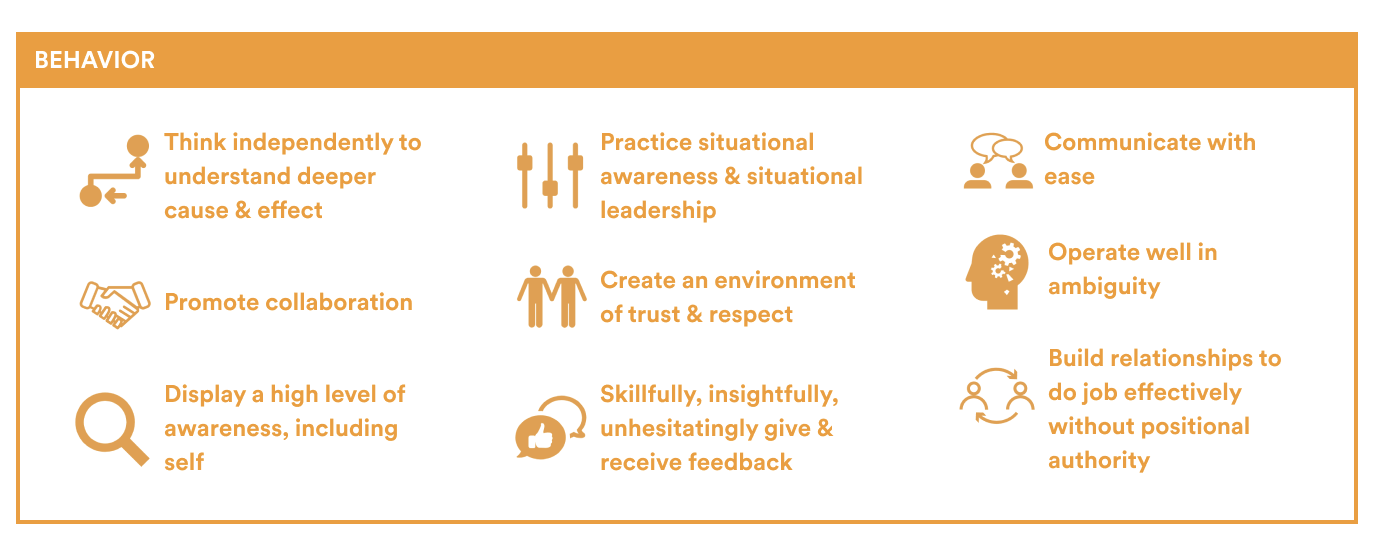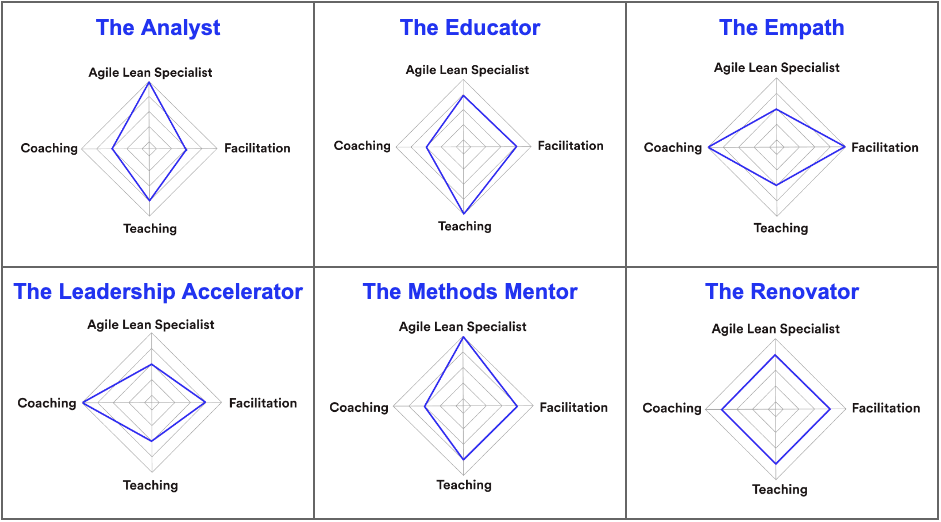Agile Coaching (AC) at Spotify: Shining a Light on the AC Career Framework

At Spotify, change is a constant, and our agile coaches are here to help teams and leaders thrive as we evolve. With agile principles famously part of our DNA, Spotify doesn’t need “transformation coaches,” as they are often known in the industry, but coaches who transform as organizational needs change. In the early 2010s, our first agile coaches established effective delivery and continuous improvement practices in cross-functional development squads. Over time, they expanded to enable successful delivery for whole organizations, and with that, we had to expand our thinking about what agile coaching at Spotify is.
In a culture that celebrates aligned autonomy and “controlled chaos,” this path was not a straight line. By 2018, we found that without shared expectations for agile coaches, the quality and impact of coaching varied widely. Additionally, some leaders and team members weren’t able to utilize agile coaches to their greatest potential and needed guidance to manage agile coach performance, growth, and promotions. Chaos, indeed!
To ensure that we have an intentional approach to establishing agile coach excellence, we created an Agile Coaching Career Framework that includes:
Clear accountabilities for the agile coach function
Definition of four coaching levels
Three pillars of competency: behavior, craft, impact
A rigorous hiring process
A self-assessment tool to support development
A promotion process
A set of archetypes to provide options for personalized growth
In the 18 months since rollout, coaches and their managers have used the framework for biannual development talks. They evaluate their current contributions and create a growth path that benefits them and the teams they work with. Roughly a third of our coaches have been recognized for exceeding expectations and promoted to the next level, and all coaches and their managers have a structure that helps them pursue impactful opportunities for growth. Importantly, everyone in the organization now has a shared rubric for understanding what good coaching looks like and what it will bring to their teams.
See the framework here and read on for more info.
How we organize the Agile Coaching framework
Our career framework is a matrix of four levels and three pillars.

The levels — Associate Agile Coach, Agile Coach, Senior Agile Coach, and Staff Agile Coach — describe the increasing accountabilities and expectations as coaches grow at Spotify. This allows us to have clear criteria for hiring, mentoring, and growing coaches throughout their careers.
The pillars — behavior, craft, and impact — provide descriptions of the areas essential for coach success. They describe how coaches go about their daily work at each level. As an agile coach advances, they expand behavioral skills, deepen their craft expertise, and broaden their impact.
Agile coach pillars
Pillar 1: Behavior

Like all Spotify leaders, we expect agile coaches to live by our values. In addition, the behaviors in the graphic above are essential for all levels of coaches to be successful. Senior and Staff Agile Coaches tackle more complexity, assume more risk, and operate in greater ambiguity. They build relationships with more-senior leaders, give higher-stakes feedback, and garner high levels of trust. They navigate conflict with skill and discretion.
Pillar 2: Craft

We believe that diverse specialization is an asset to our coaching team, so our framework encourages that. We value different kinds of specialists because they bring unique skill sets and perspectives to problem spaces and unlock different paths to impact. There are four areas in the craft pillar: Agile Lean specialist, coaching, facilitation, and teaching. For Associate Agile Coaches and Agile Coaches, we expect a baseline of skill in all areas. At the Senior and Staff levels, coaches may specialize in one or more craft areas. The archetypes illustrated below express different combinations of expertise you might see in our Senior and Staff Agile Coaches.

Pillar 3: Impact

In essence, impactful agile coaches accelerate team-based value delivery, drive sustained improvement for their teams, and focus on long-term outcomes. They move to where the challenges are and partner with teams and leaders to design and implement solutions. Experienced agile coaches assess needs with greater independence. They see and are capable of responding to a broader organizational scope. However, we don’t believe that to have the largest impact senior agile coaches must always work at the highest levels of the organization. They independently assess where the greatest opportunities for impact lie, which could be with a single team. Our agile coaches set strategic coaching goals that complement what the business needs, they measure the outcomes and seek feedback.

Framework adoption
As we drafted, we worked closely with key partners to pursue adoption across Spotify. It was important that the framework creation process was inclusive and collaborative. This contributed to the framework’s success in three ways: our content is richer because of the creative perspectives included, mutual understanding is stronger because of the discussions we had, and buy-in is achieved because we provided the opportunity for input. From start to finish, the following elements were crucial to completing the process:
Leaders entrenched in the day-to-day of coaching who were committed to driving it across the finish line
A proposal with supporting data, insights, and beliefs (we used DIBBs) that gave it a clear scope and purpose
A diverse group of trusted advisers (coaches, managers, authors of other career frameworks at Spotify) who gave feedback, participated in workshops, and asked hard questions
An executive sponsor who believed in the importance of the goal
Cooperation with an HR representative who challenged assumptions and ensured framework adoption by HR
Collaborators on supporting materials who were committed to successfully rolling out the framework
We continually optimized for inclusion of all users of the framework — agile coaches, their managers, their close stakeholders, and HR.
Bringing it all together
A career framework itself is not enough. In addition to the clarity it creates, there are other key ingredients that ensure our coaches’ success:
Leaders who understand what impact can be unlocked by talented agile coaches
Managers who advocate and create opportunities for their agile coaches
A culture that, in addition to short-term delivery outcomes, values the long-term improvements and lasting change that agile coaches are focused on
A healthy community of agile coaches who share their learnings, failures, and accomplishments in order that they can multiply their impact
Like any worthwhile pursuit, creating this framework had its highs and lows — the magic of coach collaboration alongside the setbacks that come with adopting a new approach. But there is no doubt in our minds that it was worth every bit of effort we invested in helping others understand what we value and what impact Spotify agile coaches provide. We expect the framework will continue to evolve as we learn more.
If you’re looking to build, expand, or clarify the coaching practice in your organization, we believe our experience will be instructional. Every organization has its unique culture and constraints, so this is not a recipe to follow blindly. Your competencies may differ, but we expect many of the components we’ve created to be broadly applicable. If you’re interested in learning more, we would love to chat! Reach out to us, Fiona and Cara, on LinkedIn!
Alia and Fiona initially built the Agile Coach Career Framework with support from many agile coach managers and experts at Spotify, and they partnered with Cara to bring the agile coach archetypes to life.
Many thanks to Natalie Francis, Trisha Kanjirath, Arne Roock, Ezra Sheppard, Jason Yip, Andy Park, Justin Kotzé, Kristian Lindwall, Kimberley Miller, Kathleen Bright, and all managers of agile coaches at Spotify.



